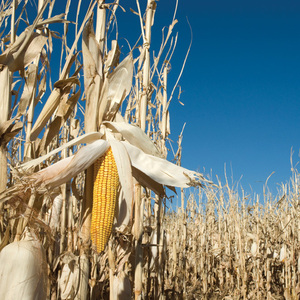USDA accepting comments on Monsanto genetically engineered corn

August 6, 2015
BY Erin Krueger
The USDA recently opened a public comment period on a preliminary plant pest risk assessment (PPRA) and draft environmental assessment (EA) for maize designated as event MON 87403, a Monsanto corn that has been genetically engineered for increased ear biomass. Comments are due Aug. 20.
According to a notice posted in the Federal Register, the USDA Animal and Plant Health Inspection Service received a petition from Monsanto Co. seeking a determination of nonregulated status of maize designated as event MON 87403, which has been genetically engineered for increased ear biomass. The Monsanto petition states that information collected during field trials and laboratory analyses indicates that MON 87403 maize is not like to be a plant pest therefore should not be regulated under the plant pest provisions of the Plant Protection Act, which regulates the introduction of organisms and products altered or produced through genetic engineering that are plant pests or that there is a reason to believe are plant pests.
The notice states that APHIS has prepared a preliminary PPRA and has concluded that maize designated as event MON 87403 is unlikely to pose a plant pest risk. APHIS also prepared a draft EA in which it presents two alternatives based on its analysis of data submitted by Monsanto, a review of other scientific data, field tests conducted under APHIS oversight and comments received on the petition.
Advertisement
Additional information, along with instructions on how to submit comments, is available on the Federal Register website.
Advertisement
Related Stories
CoBank’s latest quarterly research report, released July 10, highlights current uncertainty around the implementation of three biofuel policies, RFS RVOs, small refinery exemptions (SREs) and the 45Z clean fuels production tax credit.
The USDA significantly increased its estimate for 2025-’26 soybean oil use in biofuel production in its latest World Agricultural Supply and Demand Estimates report, released July 11. The outlook for soybean production was revised down.
The U.S. Energy Information Administration maintained its forecast for 2025 and 2026 biodiesel, renewable diesel and sustainable aviation fuel (SAF) production in its latest Short-Term Energy Outlook, released July 8.
XCF Global Inc. on July 10 shared its strategic plan to invest close to $1 billion in developing a network of SAF production facilities, expanding its U.S. footprint, and advancing its international growth strategy.
U.S. fuel ethanol capacity fell slightly in April, while biodiesel and renewable diesel capacity held steady, according to data released by the U.S. EIA on June 30. Feedstock consumption was down when compared to the previous month.
Upcoming Events










